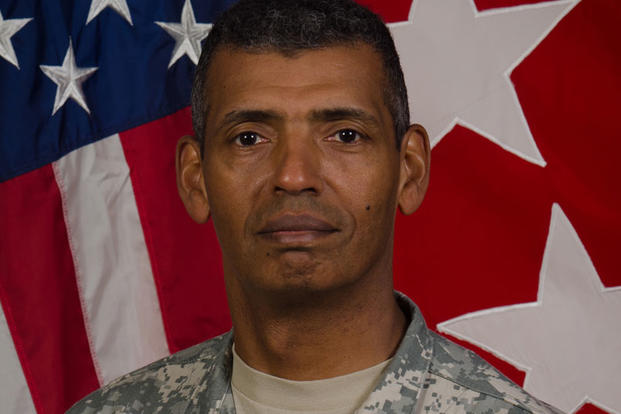President Barack Obama's choice to lead U.S. forces in South Korea strongly endorsed the placement of a missile defense system on the peninsula at a Senate confirmation hearing that turned critical of Republican presidential front-runner Donald Trump.
At the Tuesday morning hearing of the Senate Armed Services Committee, Army Gen. Vincent K. Brooks, the current commander of U.S. Army Pacific, said that positioning the Terminal High-Altitude Area Defense, or THAAD, anti-missile system in South Korea would be a "critical step in providing a further layer of defense" against the growing North Korean nuclear threat.
Without mentioning Trump by name, Sen. John McCain, the panel's chairman, then used his question period to draw out Brooks on the multi-billion dollar contributions the Seoul government makes to support the presence U.S. forces in South Korea, including paying about half of the troops' salaries.
On the campaign trail last month, Trump said, "We take care of Japan, we take care of South Korea" and "we get virtually nothing" in return. As president, Trump said he would renegotiate or scrap the treaties under which the U.S. bases about 50,000 troops in Japan and 28,000 in South Korea.
Brooks agreed with McCain, an Arizona Republican, that South Korea currently pays about 50 percent of the personnel costs of U.S. troops in South Korea, amounting to about $808 million a year.
The general also agreed with McCain's estimate that South Korea was paying for more than 90 percent of the projected $10.8 billion cost for the plan to relocate U.S. forces from near the De-Militarized Zone to Camp Humphreys south of Seoul. "They carry 92 cents on the dollar -- absolutely," Brooks said of South Korea's contribution to the Camp Humphreys move.
Brooks agreed again with McCain on his concerns that the possible return of defense spending caps, known as sequestration, and the projected downsizing of the Army to 450,000 troops by 2018 would have negative consequences for the defense of South Korea.
Fiscal restraint "raises the risk to our ability to respond," the general said. "I have concerns that there's a shallowing of the depth of the forces assigned to reinforce" the peninsula in time of war. "I think we're going to continue to lose options that would be available in a time of crisis," he said.
If confirmed, Brooks would replace Army Gen. Curtis M. "Mike" Scaparrotti as commander of U.S. Forces Korea, as well as the United Nations Command and the Combined Forces Command of U.S. and Republic of Korea troops. Scaparrotti has been chosen to replace retiring Air Force Gen. Philip Breedlove as NATO supreme commander and commander of U.S. European Command.
As opposed to other Obama administration nominees for defense positions in recent months, Brooks appeared headed to easy confirmation. "I look forward to moving forward with your candidacy," McCain told him as the hearing ended.
Other members of the committee also offered their support. "I look forward to supporting your nomination," said Sen. Thom Tillis, a North Carolina Republican. Sen. Joe Manchin, a West Virginia Democrat, added, "We're happy to have you."
Brooks' Army pedigree was evident in the front row behind him as he testified. Seated there was his father, retired Army Maj. Gen. Leo Brooks Sr., who served two tours in Vietnam, one as a battalion commander. Also there was his brother, retired Army Brig. Gen. Leo A. Brooks Jr., who was a class ahead of Vincent Brooks at the U.S. Military Academy at West Point.
In his testimony, Brooks said that, if confirmed, he would seek to utilize his ties with the Chinese military in the ongoing efforts to rein in the nuclear ambitions of North Korean leader Kim Jong Un.
Despite China's opposition to current U.S. negotiations with South Korea for the placement of THAAD on the peninsula, Brooks said that in his contacts with Chinese commanders as commander of U.S. Army Pacific, he sensed a growing "frustration" with North Korea's efforts to develop a long-range missile capable of hitting the U.S.
"They're frustrated, that's what they've communicated to me," Brooks said of the Chinese commanders. "Unfortunately, it's likely North Korea will continue on this dangerous path," he said. "Over time, I believe they're going to acquire these capabilities if they're not stopped."
-- Richard Sisk can be reached at Richard.Sisk@Military.com.





























